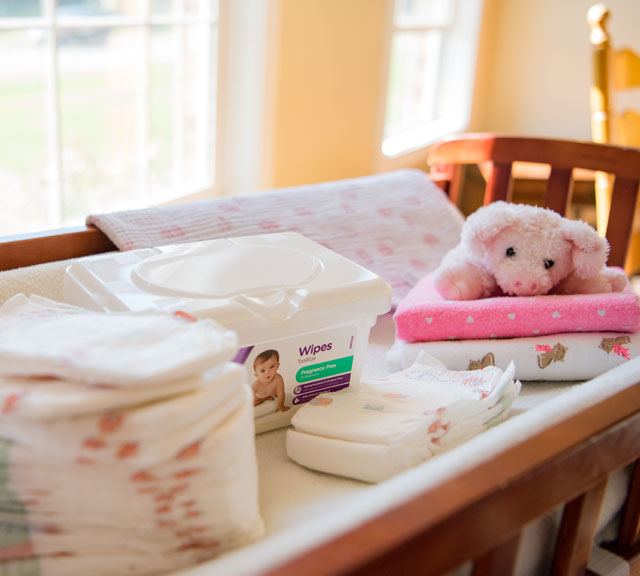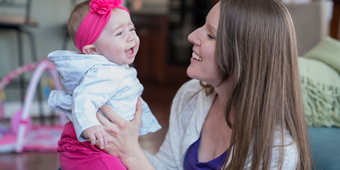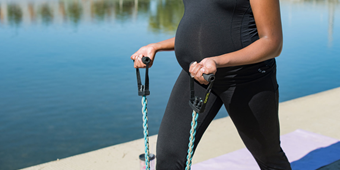Cloth or Disposable: The Bottom Line on Diapers

Find Your Perfect Match
Answer a few questions and we'll provide you with a list of primary care providers that best fit your needs.
New moms often struggle in choosing the right diapers for their baby. Happily, there is no right or wrong when it comes to cloth or disposable. Each has its benefits and drawbacks, which means that many parents use a combination of both.
No matter what you decide, diapering your baby is a fact of life. Your little one will use about six to 10 diapers daily. That adds up to 2,000 to 3,000 diapers each year. With so many diaper changes ahead, parents want to make the best choice for themselves and their family. Consider these tips to help you decide.
Cloth Diapers
Cloth diapers are available in a variety of fabrics that soak up wetness, including cotton, hemp, bamboo and synthetics. Most likely you’ll want to pair them with a waterproof cover to guard against leaking.
Caring for cloth diapers involves dumping any solid waste in the toilet. Then the cover and diaper are rinsed in cold water, soaked in a mild detergent and bleach solution, and washed. Be sure to wash cloth diapers separately from the rest of your laundry.
Pros:
- Soft on delicate skin
- Available through delivery service
- Less expensive than disposable
- Reusable
- Allows baby’s skin to breathe, which can help heal diaper rash
- Available in a wide variety of absorbencies and textures
Cons:
- May leak, requiring a diaper cover or pants
- Washing them at home is time consuming
- Sanitizing cloth diapers uses water, detergent and energy
- Difficult to use when travelling — and not readily available if you run out on the road
That adds up to 2,000 to 3,000 diapers each year.
Disposable Diapers

Lots of companies make disposable diapers but all designs are essentially the same — a soft liner that keeps wetness away from skin, an absorbent core and a waterproof outer cover. After they are soiled, dump any loose stool into the toilet and the wrapped diaper goes in the trash.
Pros:
- Convenient. You can throw them away.
- Wick moisture away from baby’s skin with absorbent material, which may help prevent diaper rash
- Easy to use when travelling and readily available
Cons:
- Contribute to landfill waste with nonbiodegradable material and bowel movements
- Parents may not change a wet diaper quickly enough because they hold lots of liquid, increasing the risk of diaper rash
- More expensive than cloth
What About the Environment?
Studies show that both cloth and disposable diapers affect our environment. Disposable diapers end up in landfills and, according to the Environmental Protection Agency (EPA), will remain there for centuries. On the other hand, cloth diapers use more energy and water to wash, and contribute to air and water pollution. Ultimately, it’s up to each mom to make her own decision about diaper type based on her concerns and needs.
Find Your Perfect Match
Answer a few questions and we'll provide you with a list of primary care providers that best fit your needs.
Source: American Academy of Pediatrics; Healthline




